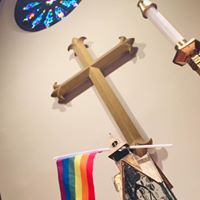
20 Years of Blessing LGBTQ Families
June 23, 2019
Acts 10: 9-23; Acts 10:34

We have an in-person and online service every Sunday at 10:00 AM ET.
View online at https://ccsnj.org/youtube.
Please subscribe to our YouTube channel.
Services will also stream on Facebook at facebook.com/Christ.Church.Summit. Replays will be available.